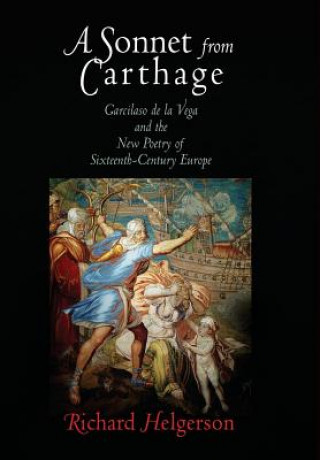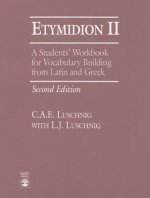
Doručení
Nákupní rádce





Nehodí se? Vůbec nevadí! U nás můžete do 30 dní vrátit
 Dárkový poukaz
V libovolné hodnotě
Dárkový poukaz
V libovolné hodnotě
S dárkovým poukazem nešlápnete vedle. Obdarovaný si za dárkový poukaz může vybrat cokoliv z naší nabídky.
Sonnet from Carthage
 Angličtina
Angličtina
 123 b
123 b
30 dní na vrácení zboží
Mohlo by vás také zajímat


In 1492 the Spanish humanist Antonio de Nebrija proclaimed that "language has always been the companion of empire." Taking as his touchstone a wonderfully suggestive sonnet that Garcilaso de la Vega wrote in 1535 from the neighborhood of ruined Carthage in North Africa, Richard Helgerson examines how the companionship of language and empire played itself out more generally in the "new poetry" of sixteenth-century Europe. Along with his friend Juan Boscan, Garcilaso was one of the great pioneers of that poetry, radically reforming Spanish verse in imitation of modern Italian and ancient Roman models. As the century progressed, similar projects were undertaken in France by Ronsard and du Bellay, in Portugal by Camoes, and in England by Sidney and Spenser. And wherever the new poetry emerged, it was prompted by a sense that imperial ambition-the quest to be in the present what Rome had been in the past-required a vernacular poetry comparable to the poetry of Rome. But, as Helgerson shows, the new poetry had other commitments than to empire. Though imperial ambition looms large in Garcilaso's sonnet and others, by the end of the poem Garcilaso identifies not with Rome but with the Carthaginian queen Dido, one of empire's legendary victims. And with this startling shift, which has its counterpart in poems from all over Europe, comes one of the most important departures the poem makes from its apparent imperial agenda. Addressing these rival concerns as they arise in a single sonnet, Richard Helgerson provides a masterful and multifaceted image of one of the most vital episodes in European literary history.
Informace o knize
 Angličtina
Angličtina




 Jak nakupovat
Jak nakupovat



























